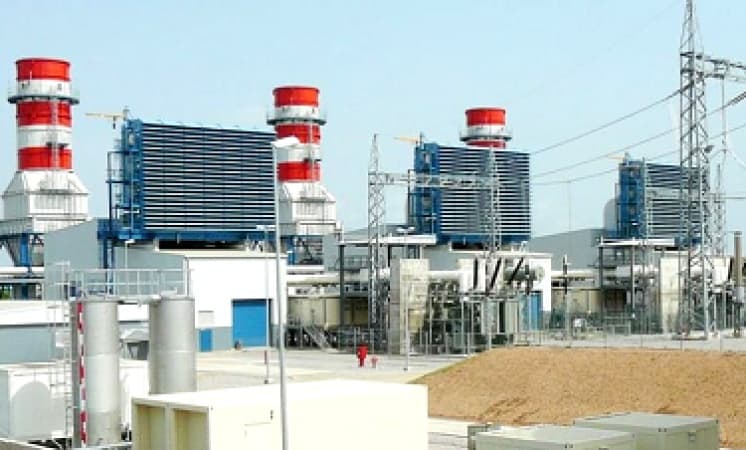The Management of the Ossiomo Power Plant has denied widespread rumours surrounding the shutdown of its operations since September 1, 2025.
Saturday Telegraph had earlier reported that the shutdown had crippled government and private businesses for the last two weeks.
The company spoke on the controversy following the claim by a representative of CCETC, identified only as Mr. W, who alleged that the company was instructed to shut down operations due to financial losses and an absence of returns on its supposed $20 million investment in the power facility and distribution company.
Responding to the allegations during an interactive session with customers, Engineer Festus Evbuomwan, representing Ossiomo Power, disputed the claims, adding that it has paid more than ₦2 billion to its Chinese technical partner, Jiangsu Communication Clean Energy Technology Co. Ltd. (CCETC), since the plant began generating electricity
He stated that the Ossiomo Power Plant is unaware of any $20 million investment by the Chinese partner, and that financial operations have been transparent.
“They generate power, we sell, and we pay them,” Evbuomwan explained.
“The partners operate a joint account, and over ₦2 billion has been paid to the Chinese partners for power generated with their machines. The claim that they have not received anything is false.”
According to Evbuomwan, the Chinese side had, immediately after shutting down the plant, submitted a demand for ₦185 million — a sum allegedly earmarked to compensate two Chinese nationals not currently present in Edo State. An additional ₦18 million was also requested for payments to Nigerian staff.
He said Ossiomo declined the request, questioning the legitimacy of the figures.
Evbuomwan suggested that the dispute may be rooted in an attempt by CCETC to take over control of the power generation operation, having realised how lucrative the business had become.
“They went to some quarters and raised issues, probably thinking they could manoeuvre us with the help of some influential figures, so that they can use their machines to generate power and sideline us. But that is not possible,” he said.
He emphasised that the land on which the equipment is installed, as well as the access road and core infrastructure, all belong to Ossiomo. “The investment so far made belongs to the Nigerian partner,” he added.
Speaking further, Evbuomwan called on the Edo State government to allow Ossiomo Power to distribute electricity to willing customers without obstruction. He reiterated that ex-governor Godwin Obaseki has no financial stake in the company, dismissing a widely held belief that the former governor is secretly involved.
“What we’re trying to do is clear the bias this government has towards us, believing that Obaseki has shares in Ossiomo. I want to make it clear: Obaseki has no dime in Ossiomo. So, the government should do business with us,” he said.
He also addressed the current power outage caused by the internal conflict, offering assurances that the company had begun power generation again, though not yet at full capacity.
“We have purchased turbines, and one is already operational. Work is ongoing on the second turbine. Once all five turbines are functional, we will be back at full capacity,” he said.
He, however, noted that customers connected through government infrastructure may not immediately benefit from the restored power supply.
“Customers connected through the Edo State Government line will not be connected. This is because the Government bought the poles and contracted the wiring. We cannot force the government to do our bidding.
“Efforts are currently underway to establish a dedicated 33kVA line along Airport Road and New Lagos Road to expand distribution capacity.
“We are gradually restoring supply to customers who want to remain with us. The company is doing everything possible to improve distribution, but we are limited in areas that rely on government infrastructure.”
He also appealed to authorities to support local enterprise rather than work against it. “It is the duty of every government to encourage Nigerian citizens to invest, not to frustrate them,” he concluded.















